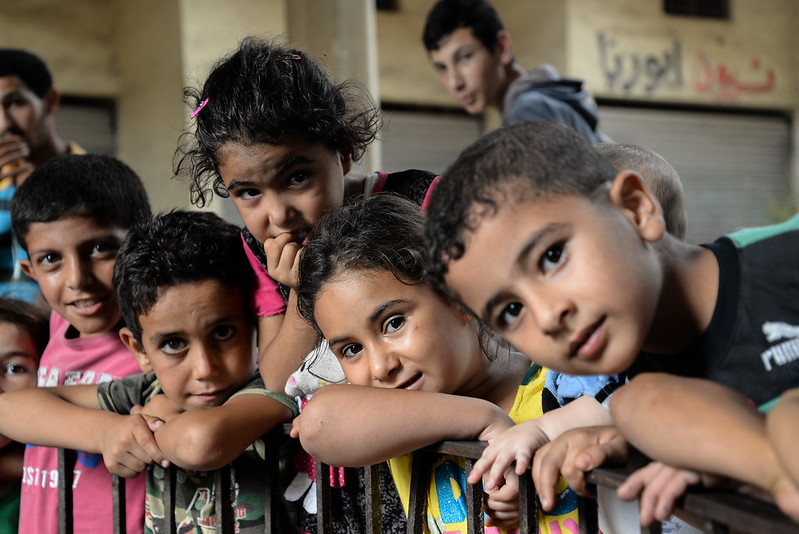Improving the Lives of Palestinian Refugees in Lebanon

Unable to obtain citizenship or the right to work, Palestinian refugees living in Lebanon have faced many obstacles and restrictions. Forced into displacement by war since 1948, thousands of Palestinians have found refuge in their neighboring country, Lebanon. Through its many wars and conflicts, an increasingly corrupt government and a worsening economic situation since 2019, Lebanon has never been the most welcoming environment for refugees, particularly Palestinians.
Problems Palestinian Refugees Face in Lebanon
Lebanon is the country that hosts the largest number of refugees per capita, due to surrounding wars and conflicts in its neighboring countries of Syria and Palestine. According to UNICEF, there are around 210,000 Palestinian refugees living in Lebanon, all of whom are prohibited from working in 39 professions such as medicine, law and engineering. They are also unable to access health and education provided by the Lebanese government because a discriminatory Lebanese law means that Palestinians are unable to gain Lebanese citizenship, and thus unable to access essentials like work and education.
For many in Lebanon, particularly refugees, life has become unlivable. The United Nations Relief and Work Agency (UNRWA) reported that poverty levels reached 93% among Palestinian refugees living in Lebanon. Moreover, all 12 refugee camps in Lebanon suffer from mass crowding, poor conditions and increased risk of involvement in violence, all of which pose a significant threat to the camps’ youth and the livelihoods of families.
The Role of UNRWA and UNICEF
However, there have been many efforts to improve their conditions including social initiatives and calls for aid and assistance. While UNRWA has assisted in providing education and school supplies, these are all based on donations, all of which have severely declined since the beginning of the COVID-19 pandemic. Accordingly, UNRWA has called for $13 million to provide crucial cash assistance to Palestinian refugees living in Lebanon as well as health care services and essential supplies.
UNICEF has also called for aid to provide help to Palestinian children living in Lebanon. For instance, their efforts consist of solutions put forward by the Lebanese Palestinian Dialogue Committee (LPDC), such as ensuring that the Lebanese government implements the Lebanese working group on Palestinian Refugees Affairs in Labour and Social Security for Palestine Refugees, as well as a Youth Strategy for Palestinian Refugees 2019-2025.
UNICEF’s achievements provide great hope for improving the lives of Palestinian refugees in Lebanon, especially children. Some of these include:
- Encouraging employability opportunities through youth-led initiatives.
- Providing school supplies.
- Training to education personnel.
- Intervention services to prevent gender-based violence.
- Repair and maintenance of more than 500 water systems.
Innovative Initiatives and Interactive Workshops
There have been several inspiring workshop initiatives that provide Palestinian and Syrian refugees — particularly those living in Lebanon’s Shatila refugee camp — the opportunity to earn consistent wages through interactive workshops.
Tatreez is a Palestinian embroidery style, emblematic of Palestinian culture and endurance. In the Shatila refugee camp, Tatreez workshops are led by Palestinian women who teach the tradition to younger generations, preserving cultural traditions as well as providing a safe environment and community for women living in the Shatila refugee camp. The long-term goal is to provide women in the workshop with a consistent income to improve their livelihoods and make ends meet, as many of the women aspire to continue embroidering and selling their pieces.
Similarly, the Jiu-Jitsu boot camp for young children in Shatila has provided a safe haven and opportunity for “self-discipline, respect and self-defence” for young boys who are susceptible to a life of crime. In conjunction with the boot camp, organizers of the initiative, Saoud and Mohammed, were able to raise more than £15,000, all of which went towards establishing long-term initiatives as well as ensuring there was a long-lasting impact on the community at Shatila refugee camp.
Looking Ahead
As Palestinian refugees continue to face hardships and obstacles to a better future, there needs to be wider address and support, domestically and internationally, of their situation. Projects and workshop initiatives have increasingly provided hope for Palestinian refugees who have long struggled to access stable jobs and livelihoods while living in Lebanon.
The impact of these creative and interactive workshops is significant in offering real work for Palestinian refugees who are unable to work because of discriminatory laws and a beneficial outlet for young boys in refugee camps. More funding of these projects by governments and organizations could widen the number of refugees reached and help to solve the problems that they face on a daily basis.
– Amber Hamed
Photo: Flickr
